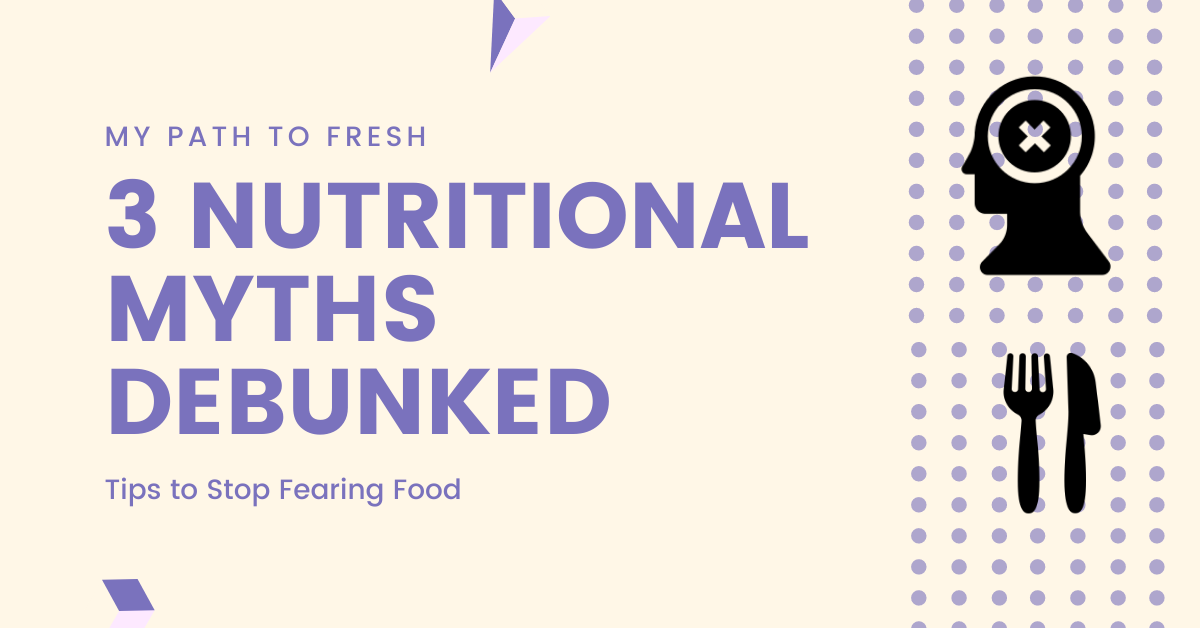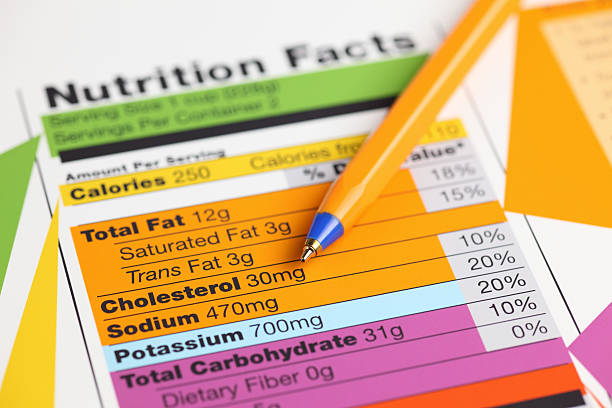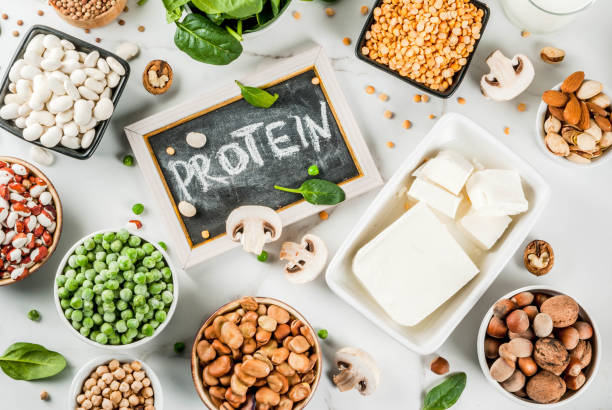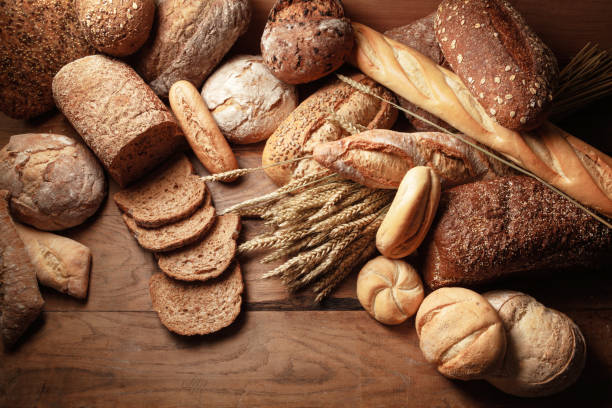3 Nutrition Myths Debunked – Common Misconceptions

Here are a few nutrition myths that can help you feel more confident when making food choices. I believed quite a few of these before learning more about it in my nutrition science course, so thought I would share!!
DISCLAIMER: I am not a licensed dietician, and so I cannot answer to specific needs. I’m just sharing what I learned from my 8-week Stanford Nutrition Science Online Certification course as well as other research studies!
1. Cholesterol is not the enemy!

Cholesterol is NOT all bad! While we know that high blood cholesterol levels can often indicate cardiovascular disease, blood cholesterol levels are minimally affected by “dietary” levels (cholesterol-rich foods we eat). Although we commonly think that the more cholesterol rich foods we eat, the higher our blood cholesterol levels, this is simply not true. Over 2/3 of the population exhibits no increases in blood cholesterol even after eating high-cholesterol foods! Your body desires to maintain standard level of cholesterol in the body for optimum function, so as cholesterol intake increases, your body also makes less cholesterol in order to keep cholesterol levels balanced, New studies are also emerging that show that while our LDL (“bad cholesterol”) does increase, dietary cholesterol DOES NOT increase small, dense LDL particles. The small LDL particles that lead to cardiovascular disease are actually heavily influenced by SATURATED FATS. Fats play a huge role in the way that cholesterol is absorbed. Since foods that are generally considered “rich” are high in both dietary cholesterol and saturated fats, we often claim that “cholesterol” is the bad guy, which is not true in most cases! So, EAT your eggs, nuts, moderate amounts of dairy and fish! But limit your fried foods, fast food, and processed meats!
2. Being plant-based does not make you deficient in protein!

A plant-based lifestyle, contrary to popular belief, does not make an individual deficient in protein! Even if you’re training for a bodybuilding competition, the average individual will get all of their essential amino acid requirements met, whether they pursue the vegan lifestyle or they continue to eat animal products. Some of the greatest athletes of our time, Serena Williams, Arnold Schwarzenegger, and Alex Morgan all are all vegans! If you’re bored, please watch The Game Changers. I cannot recommend this enough, it’s so interesting!!
Let’s start with the basics: proteins are an essential macromolecule, built out of amino acids, that primarily help with building and repairing cells. Although our bodies can synthesize amino acids on their own, there are 8 essential amino acids that we need to obtain through our food! According to the US government’s current recommended daily allowance, individuals need 0.8 grams of proteins per kilogram of body weight. This means, for example, I would need 52 kg * 0.8 = 41.6 grams of protein. This is definitely way lower than expected! Most individuals easy meet their protein requirement for the day, without really trying. The question is whether you are getting all 8 of your essential amino acids. While animal products are generally considered to be “complete” proteins, as they contain all 8 of those essential amino acids, a balanced plant-based diet can also help you meet the essential amino acid requirements. The only difference is that with “incomplete” proteins, all of the essential amino acids are not condensed in that one food. But as long as you are eating a balanced diet with varied sources of protein, you are all good!! Some plant-based sources of protein are lentils, quinoa, tofu, tempeh, beans (chickpeas, black beans, etc.), and nuts!!
3. Depriving yourself of carbs is not sustainable or healthy!

Avoid carbs if you want to lose weight, I’ve heard it time and again, with the ketogenic diet! The intent is right, eating tons of carbohydrates a day will make you feel sluggish, lethargic, and cause you to gain weight! But restriction is no lifestyle. I don’t have numbers for you, but I guarantee that any lifestyle where you feel deprived isn’t sustainable, and after all isn’t sustainability our goal? If you aren’t able to keep it going for years, then it’s highly likely that you could gain all the weight you had lost earlier from the keto diet. I say, moderation is key!! Another important factor to consider is the fiber provided by many carbohydrates. Fiber is essential for ensuring gut health and a healthy internal microbiome. This is especially important for individuals like myself who are pursuing the hormone-friendly lifestyle. By eliminating the carbohydrate food group altogether, you could be missing out on important dietary fiber that can help ensure long-term health.
There is such a thing as good carbs and bad carbs! Starchy vegetables like potatoes and squash are super healthy. Grains like wild rice and quinoa in limited quantities can also help satiate you. Include lower-carb vegetables in your diet as well without restrictions: green beans, broccoli, leafy greens. With that in mind, try to steer clear of your processed mac and cheese, heavy cakes, and refined breads! Balance is key. An occasional slice of pizza won’t hurt, but a lifestyle of eating pasta and lots of white rice every other day just might! Be patient with yourselves and try to enjoy your meals. Food is still an integral part of culture and family, so give yourself grace when things aren’t perfect 🙂
Sources:
https://pubmed.ncbi.nlm.nih.gov/22037012/
https://pubmed.ncbi.nlm.nih.gov/10856769/
https://www.businessinsider.com/vegan-athletes-and-why-they-changed-their-diet-11
https://www.health.harvard.edu/blog/how-much-protein-do-you-need-every-day-201506188096
https://www.hsph.harvard.edu/nutritionsource/carbohydrates/